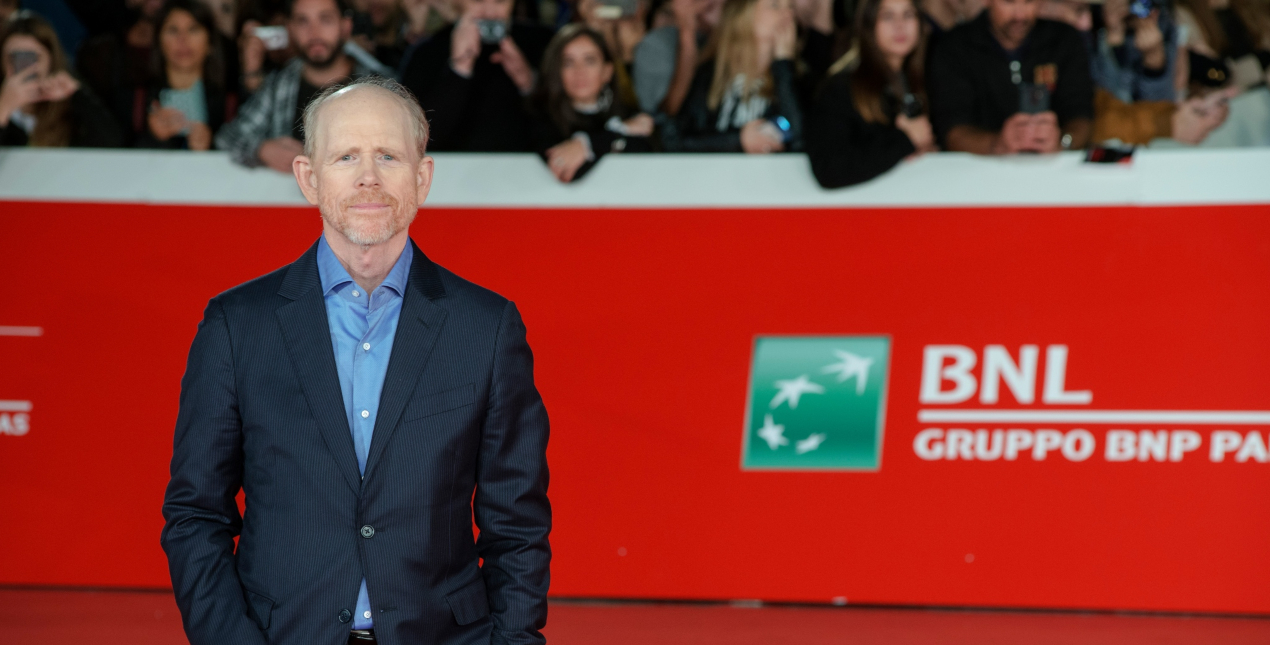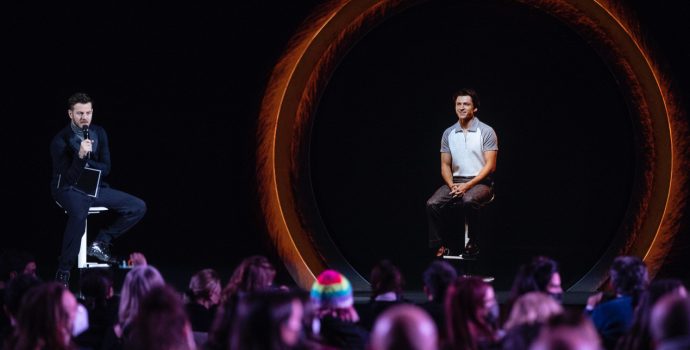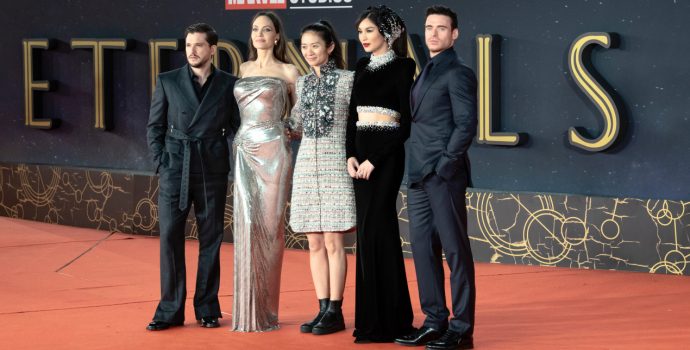American filmmaker talks the italian opera icon
Ron Howard was the long-awaited protagonist in the second day of Rome Film Festival: yesterday morning, the american director of Apollo 13, A Beautiful Mind and Rush presented his new documentary, Pavarotti, a heartfelt and intimate portrait of the italian opera icon, who passed away in 2007. Praised by the critics and the audience during the evening premiere, the documentary includes rare interviews with the singer’s family and colleagues and includes never seen before footage about Pavarotti’s life. Today, in the afternoon, Howard will be the special guest at the third Close Encounter with the audience of Rome Film Festival.
We met him right after yesterday’s press screening to talk about his new film.
This is the third of a series of documentaries that you dedicated to music stars: after the Beatles and Jay-Z, why did you choose Pavarotti?
«I had such a great creative experience working on The Beatles: Eight Days a Week which Nigel Sinclair produced: he was the one that invited me into that process as a director. I was a Beatles’ fan but not with a deep knowledge. Nigel works with a great team and I found the project very satisfying; later we started looking for other subjects and he suggested Pavarotti: it was very interesting because Pavarotti is a household name around the world and people don’t know as much as they think about him: there are many people who might not understand that much about his music and may not know the details about his life. As I began to read and to understand what his life journey was, I found it fascinating, surprisingly relatable and, as somebody who doesn’t know that much about opera, I began to see that his life was kind of operatic: much of his life can be understood through the arias. As a film director, working with actors, I can see through his recorded performances that there was an emotional connection between his life experiences and what he was singing. So we started to build the movie around those arias.»
Did you struggle to convince Pavarotti’s family to cooperate?
«No. After having some conversations, we realized that the family members were willing not only to cooperate, but to be interviewed. This is something they’ve been reluctant to do before and, this time, they accepted without imposing any creative controls, they trusted the process and really shared the truth. His family, his second wife Nicoletta, they brought so much to the film of themselves and, also, they gave us credibility, in getting the interviews, and access to great footage, footage that have never been seen before, private videos where Pavarotti is very honest. Not everything of what he says is very flattering or complimentary: there are moments where he’s not promoting a concert, he’s just talking about his life. I just felt like we could give a very balanced and interesting look at it and, for sure, it was a life very much worthy of celebrate.»

Your film delivers to the audience the portrait of man with a big smile and, also, a wonderful representative of italianness around the world. What do you think about him so far?
«I think Pavarotti was an incredibly charismatic person and I think he was not only a brilliant genius-level artist, but he was also a fantastic ambassador for opera. One of his agendas, maybe his primary agenda, was to take opera to the masses, traveling the world, playing in places no one had ever played before, finding ways to collaborate with popstars and so forth trying to bring opera to more and more viewers. With great modesty, I hope that our film just has a little bit to extend that mission and I’ve tried to make a movie that not opera lovers would find engaging to connect with, to make them discover the power of this great art form. The last thing I would say I admired about him it’s an honest sustained humility, a rare quality among superstars. That doesn’t mean he didn’t have confidence in what Pavarotti could do and that he wasn’t proud of it, but it’s that connection to his roots: he was grateful for what he had achieved, he knew it form the support from the people around him, but he thought he was a gift from God and he had to make the most of it.»
Your documentary doesn’t reveal everything about Pavarotti, there’s still some mystery behind his figure. In this sense, which was the most difficult thing to film?
«As a filmmaker, you can come closer to try to directly express what you think someone was like or their life may have meant: in a scripted version, you summarize more in order to create the scenes, in a documentary you have to go with the footage that you have and what you learned from the interviews. Paricularly in a film like this there’s not a narrator: this is not me or someone else explaining everything about Pavarotti. So yes, it remains an air of mistery. It’s an interpretation an expression of what I and our team feel we learned and we can share. The most difficult thing? Maybe concentrating everything in the length of one film.»

In the film there’s also a heartfelt comment by Bono from U2. Can you tell us something about this interview?
«First of all, Bono’s contribution is remarkable because is a real testament of his love for the maestro: they had a strong friendship and I think that Pavarotti really inspired him as an artist. Also, when Bono’s talking about the critics that the maestro received later in his career, about his voice aging, about his personal life, as an artist he knows what he’s talking about and he says they did not understand: Pavarotti carried on, even if it hurt, because he felt it was the right thing to do.»
You had a very eclectic career: which phase is this in your creative journey? What are you looking for right now?
«I was a child actor working in television and in movies from the time I was 4: by the time I was 14 or 15 I knew I wanted to be a filmmaker and a director and by the time I was actually directing, in my early 20s, I knew I didn’t want to be to narrow. I didn’t want to be a brain who did only thrillers or comedies, I wanted my life’s work to be an exploration: my formal education is a modest one, so these experiences that I have mean the world to me and they provide a constant growth. That’s what I’m always looking for: a creative growth. In the past five years, it led me into the documentary space and I’ve been incredibly gratified by it, stimulated by it and sometimes humbled by it, because the people who’ve fully dedicated themselves to this work are people who I admire. Also, now in filmmaking things are blending together in really exciting ways, culture and aesthetics are discovering each other. I’m really grateful at this point in my life to have the experiences that I have behind me, but also the energy that I still have. My children are raised, I have time, I have no hobbies: all I want to do is to be with my family and work.»





